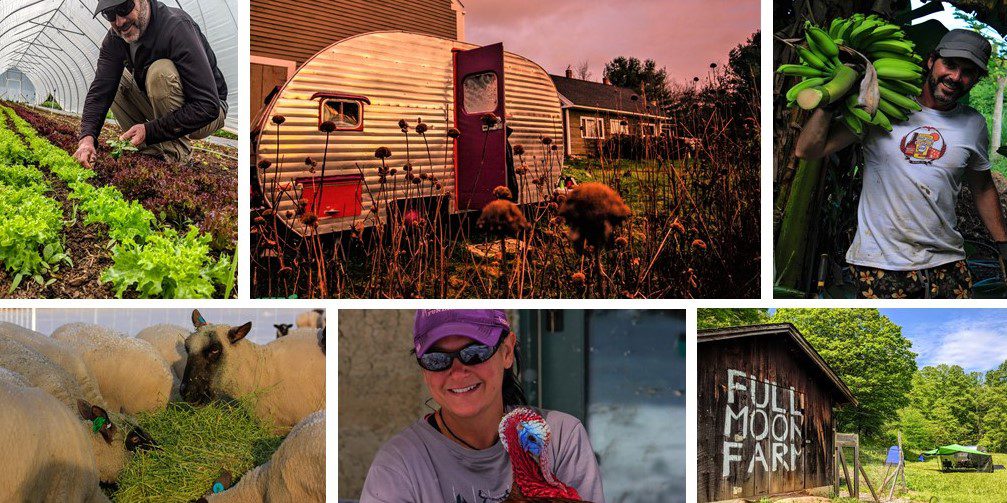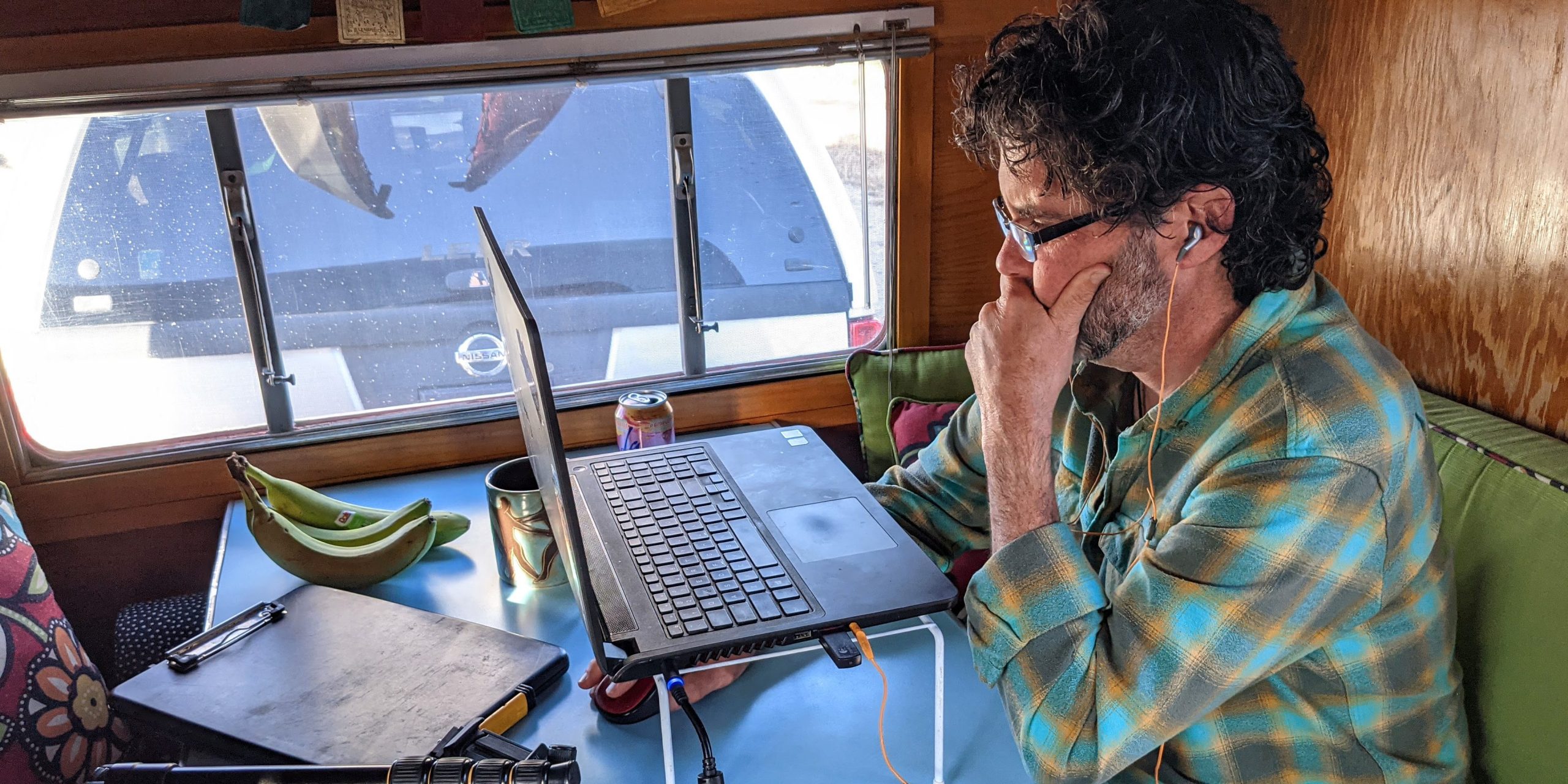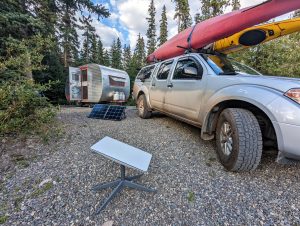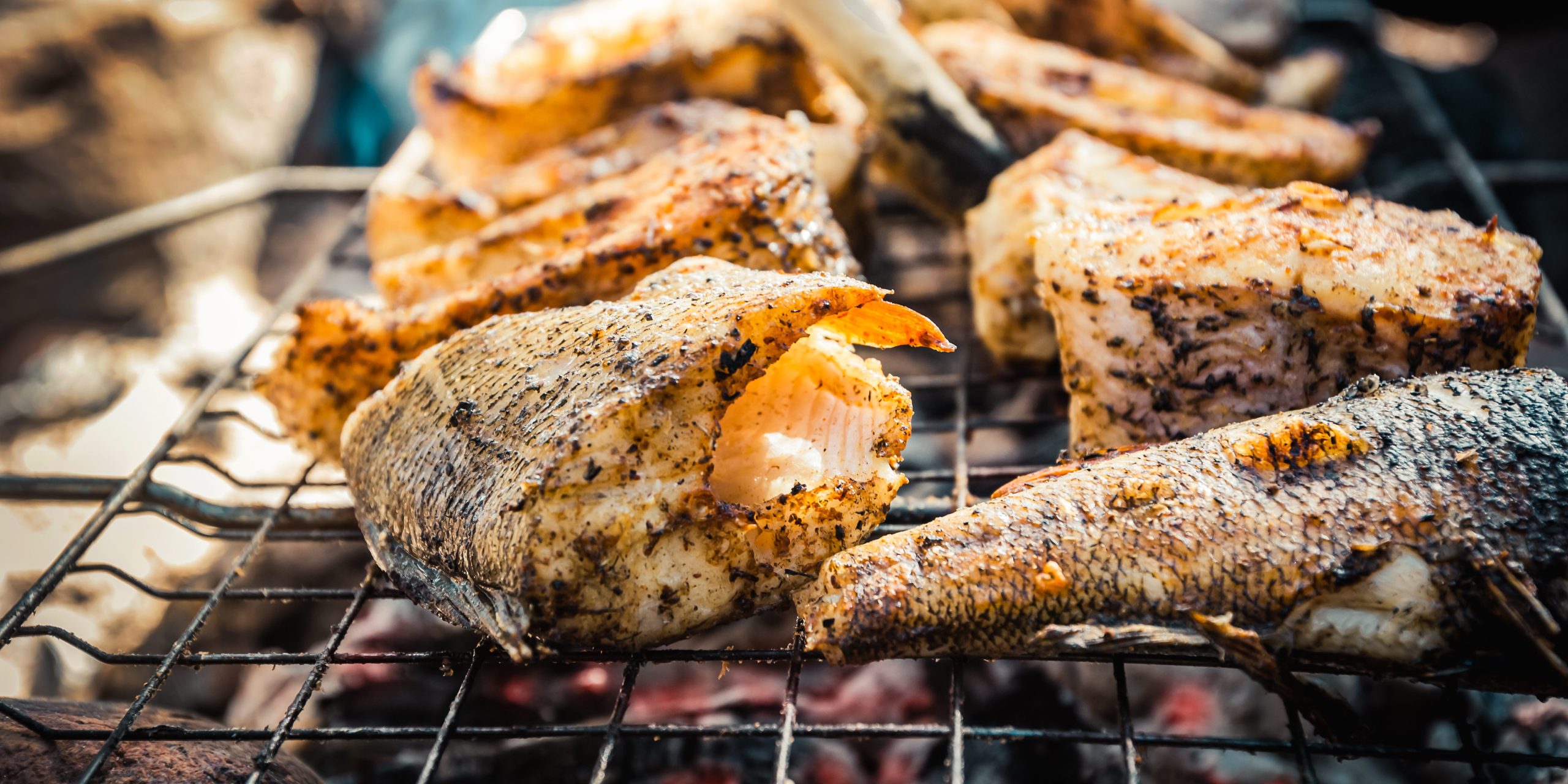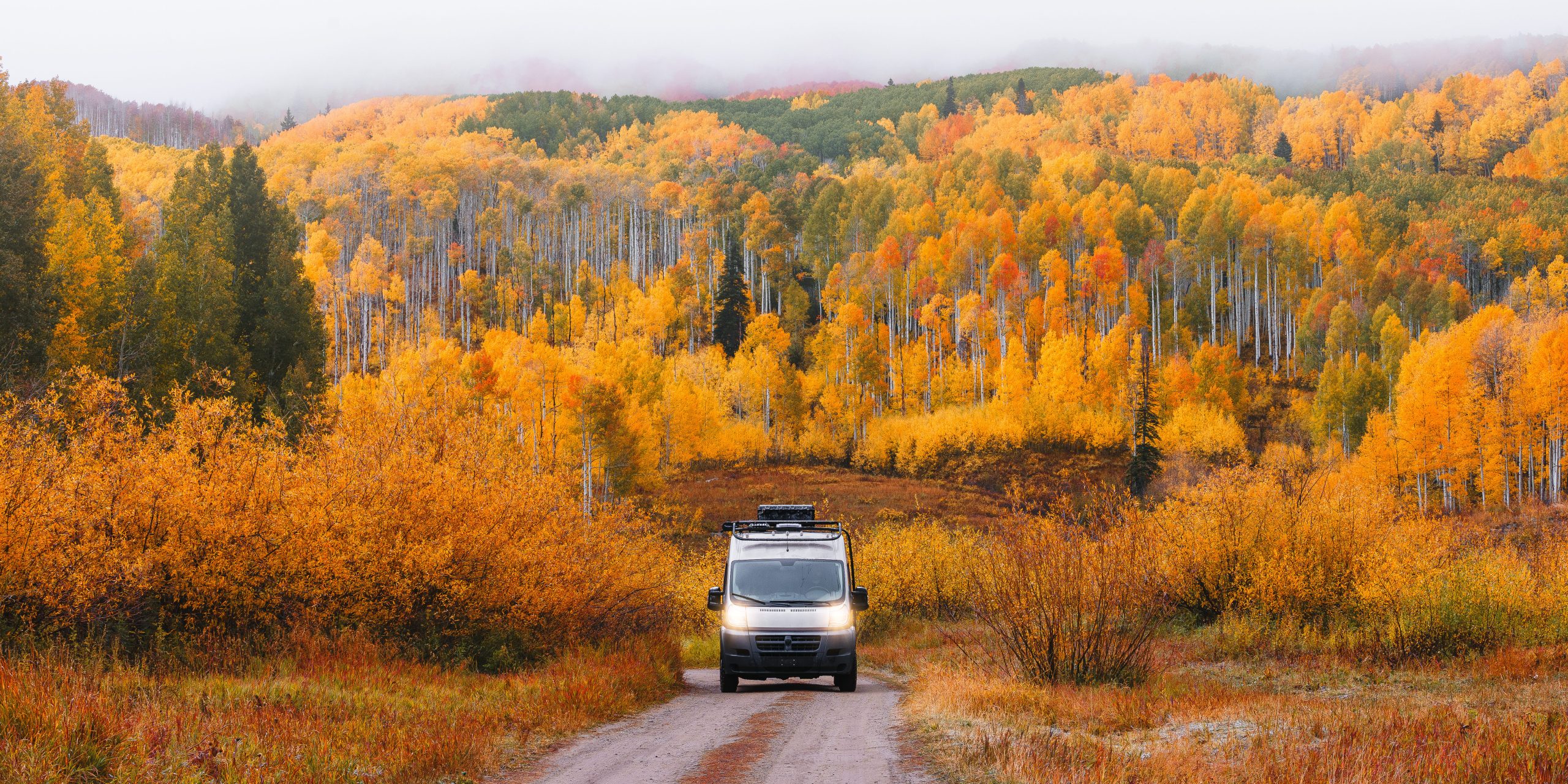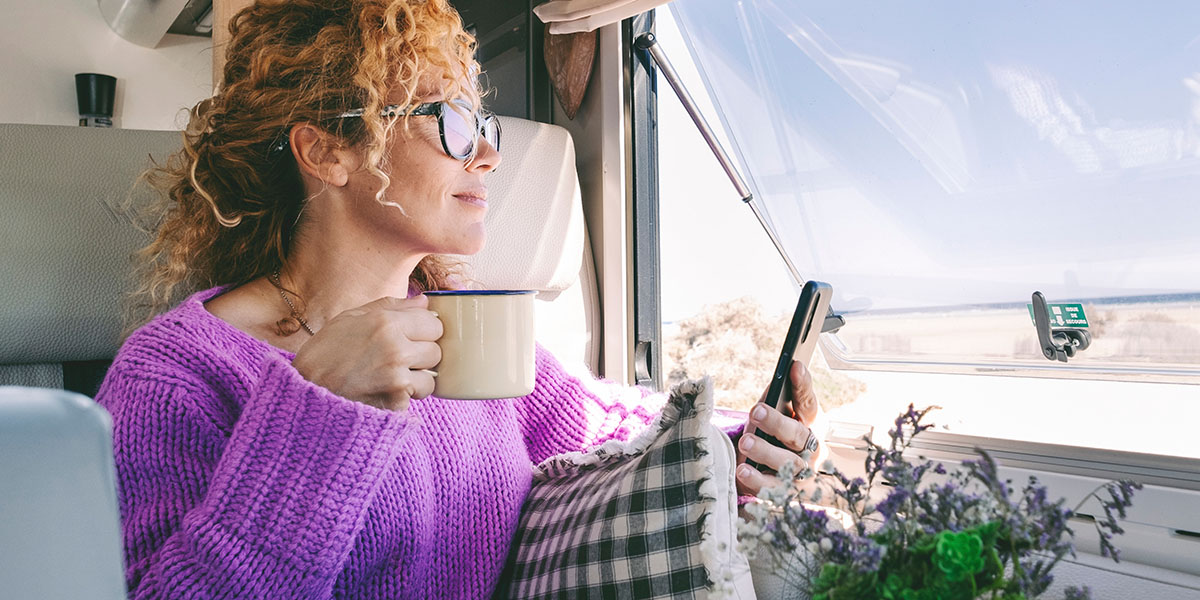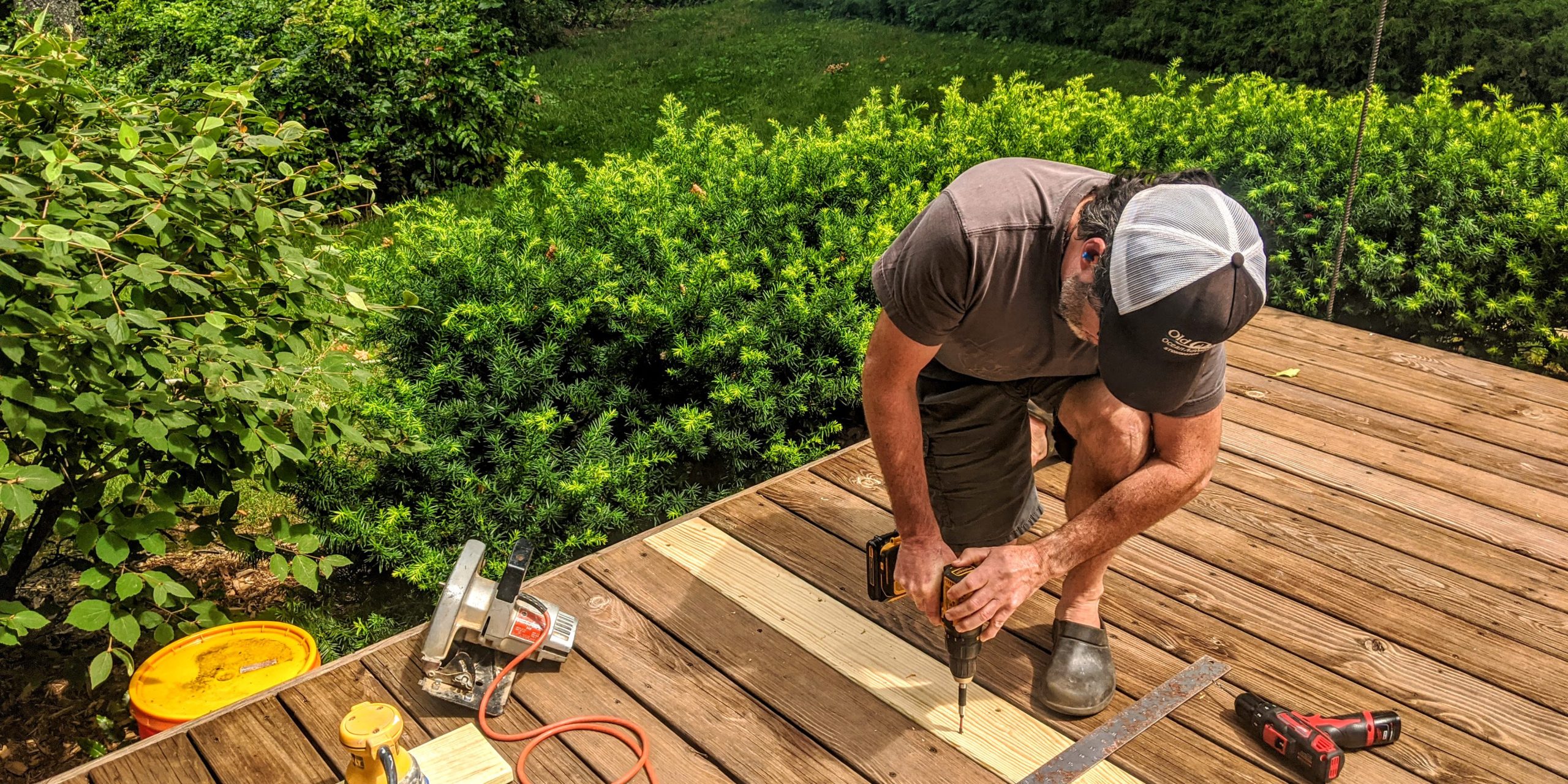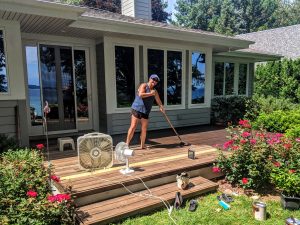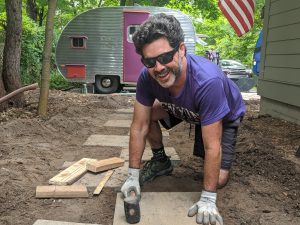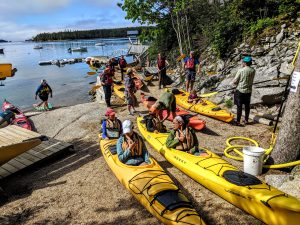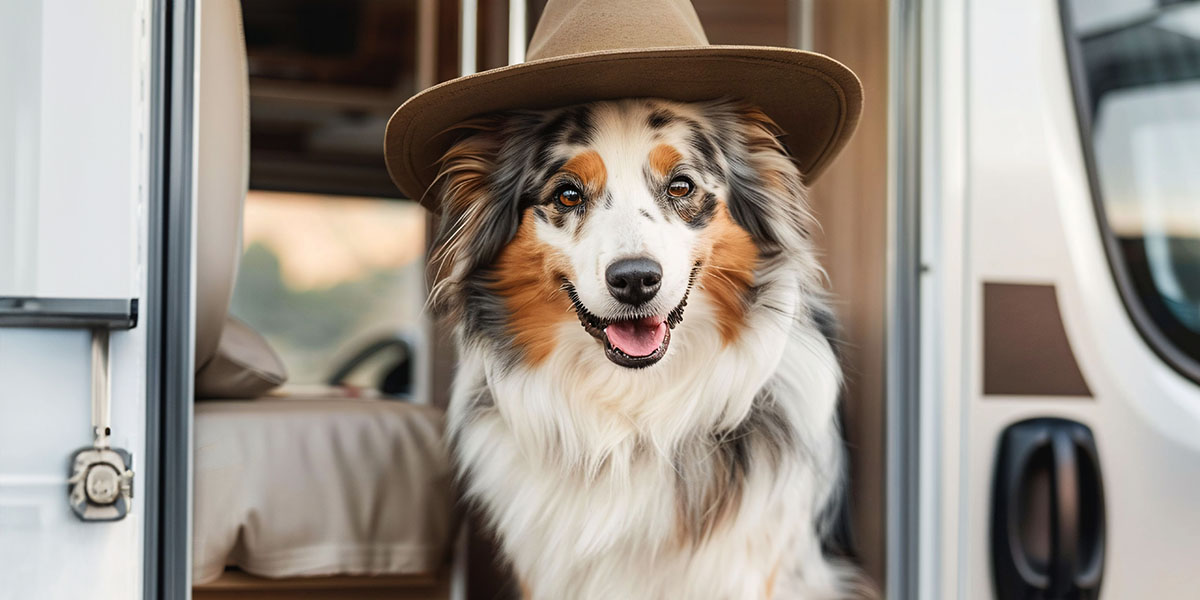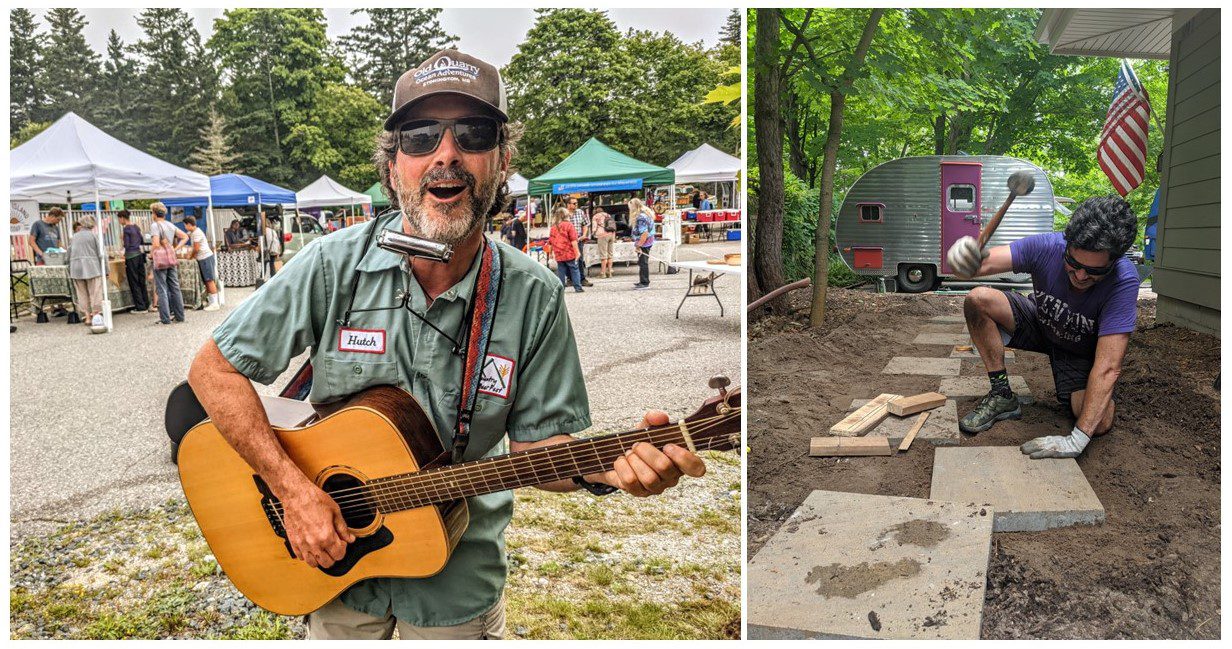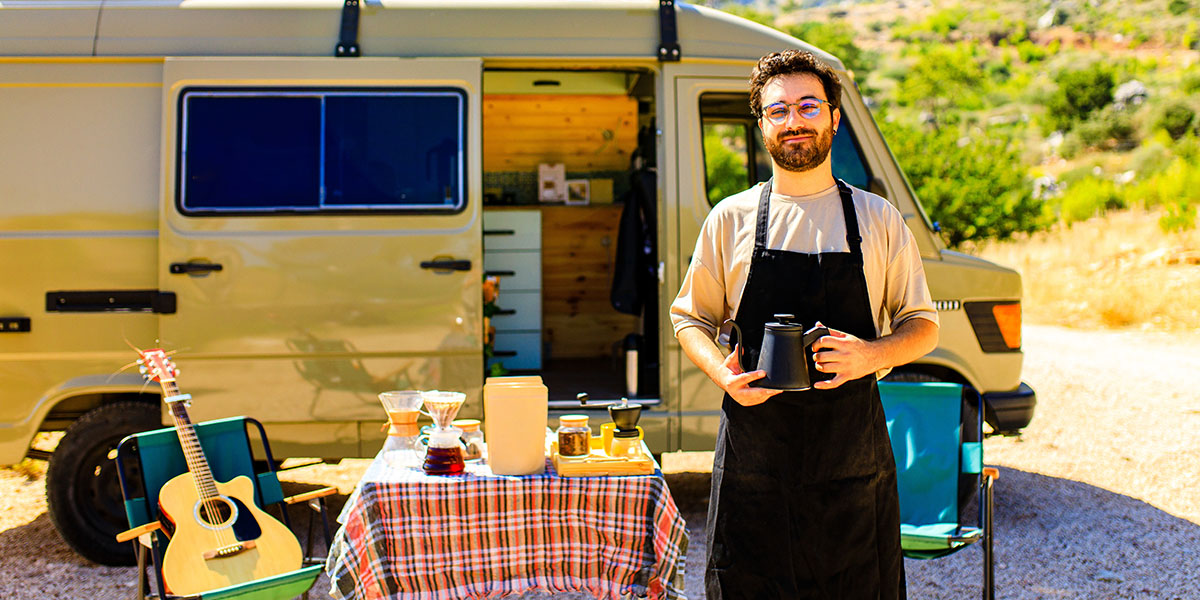It’s a common problem. You may be ready to drive off into the sunset in your RV, but … your bank account isn’t up to the challenge. Well, do you love to share your skills with others as well as learn new ones? If so, RV work trade and volunteer jobs pay more than you might think!
When we drove away from our home, careers, and community in the fall of 2012, we were in our early forties and ready for something completely different. While living and traveling in our vintage rig, we spent several years doing volunteer work and work-trade in order to build new skills, try new things, discover new parts of the country, and meet new people. (All while stretching our savings account a bit further. )
Unexpected Benefits
There are lots of good reasons to do this. You may be officially retired and want to offset some travel costs. Or maybe you’re a in a couple where one person is not yet retired, but the other is seeking something meaningful to dig into each day. Jumping into RV work trade and volunteer jobs will often do more than give you a place to park your rig. Many organizations also provide some meals/potlucks, as well as bathroom, laundry, and Wi-Fi privileges. We found that these extra amenities drastically lower our living expenses for a few weeks (or even months). All while we give freely of our time to various organizations across the country!
The best parts are that you don’t have to be an expert. And you don’t need to work full-time. In fact, most are just part-time opportunities. This gives you time to explore the area. You just need some related, transferable experience, a positive attitude, and a willingness to try and learn new things.
So, here are some examples of RV work trade and volunteer jobs while traveling around the country in your own home on wheels.
Love to garden and play in the dirt? Farmers will dig you.
Try organic farm work at small, family-owned farms; we’ve volunteered on farms from Maine to Hawaii. You’ll meet like-minded people and learn a whole host of new skills as well. And, don’t even get us started about those amazing potlucks! Check out Worldwide Opportunities on Organic Farms for details.
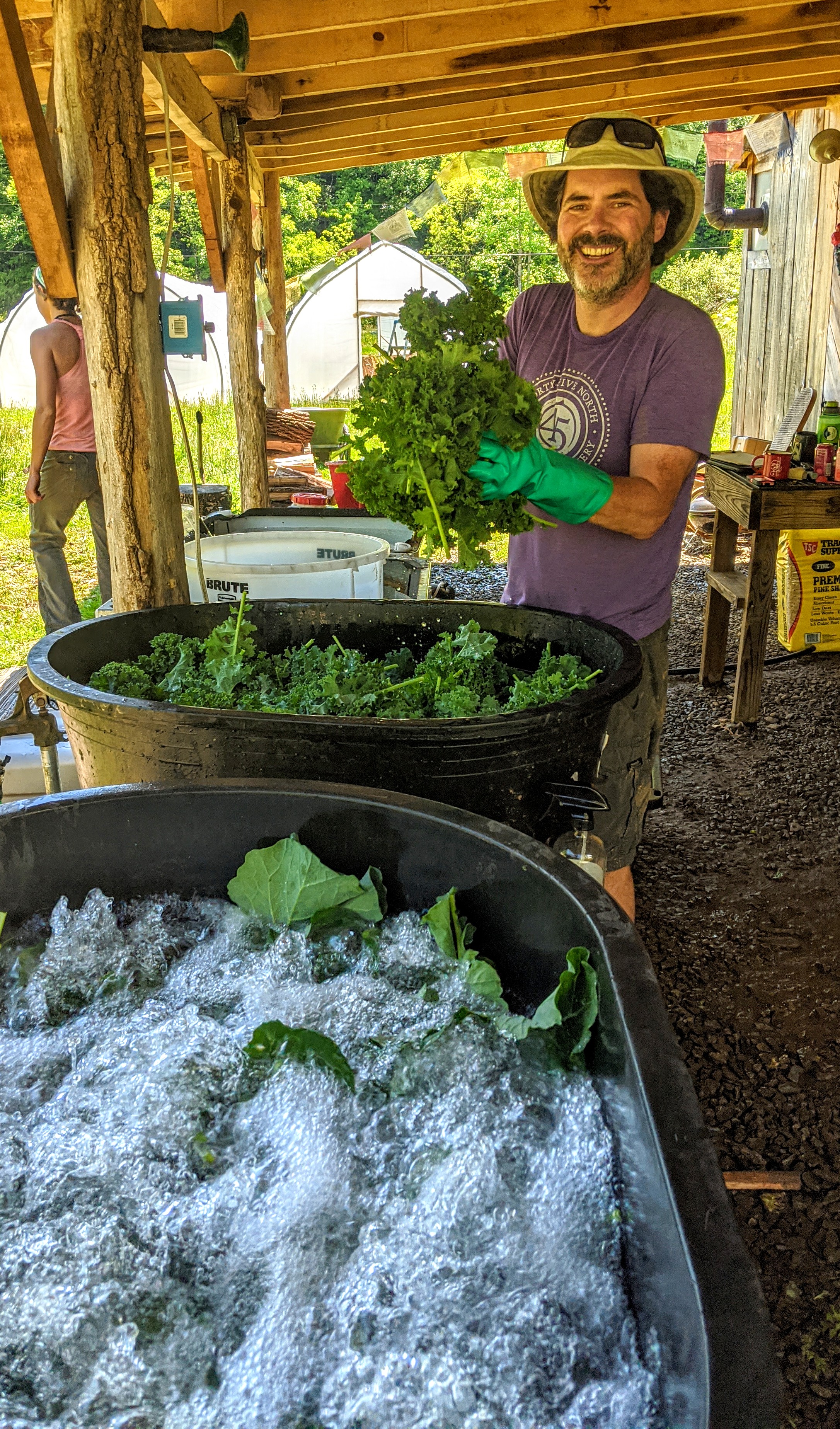
Have office, people, or landscaping skills? Campgrounds want workampers.
Workamping and campground hosting are great options for folks of all ages and abilities. Each opportunity and each campground requires different skills and abilities, so be sure to carefully read the details of each position.
Enjoy music and festivals? Help is music to their ears.
Many festivals hire an army of volunteers and provide them an RV spot in exchange for their time. Check out Music Festival Wizard for a list of opportunities. We recently volunteered at the Albuquerque International Balloon Fiesta for 11 days and had a blast!
Pro Tip: You can peruse the AIBF volunteer options before February 1 for that year’s event, but applications become available on the first day of February each year. And the good ones often fill up quickly.
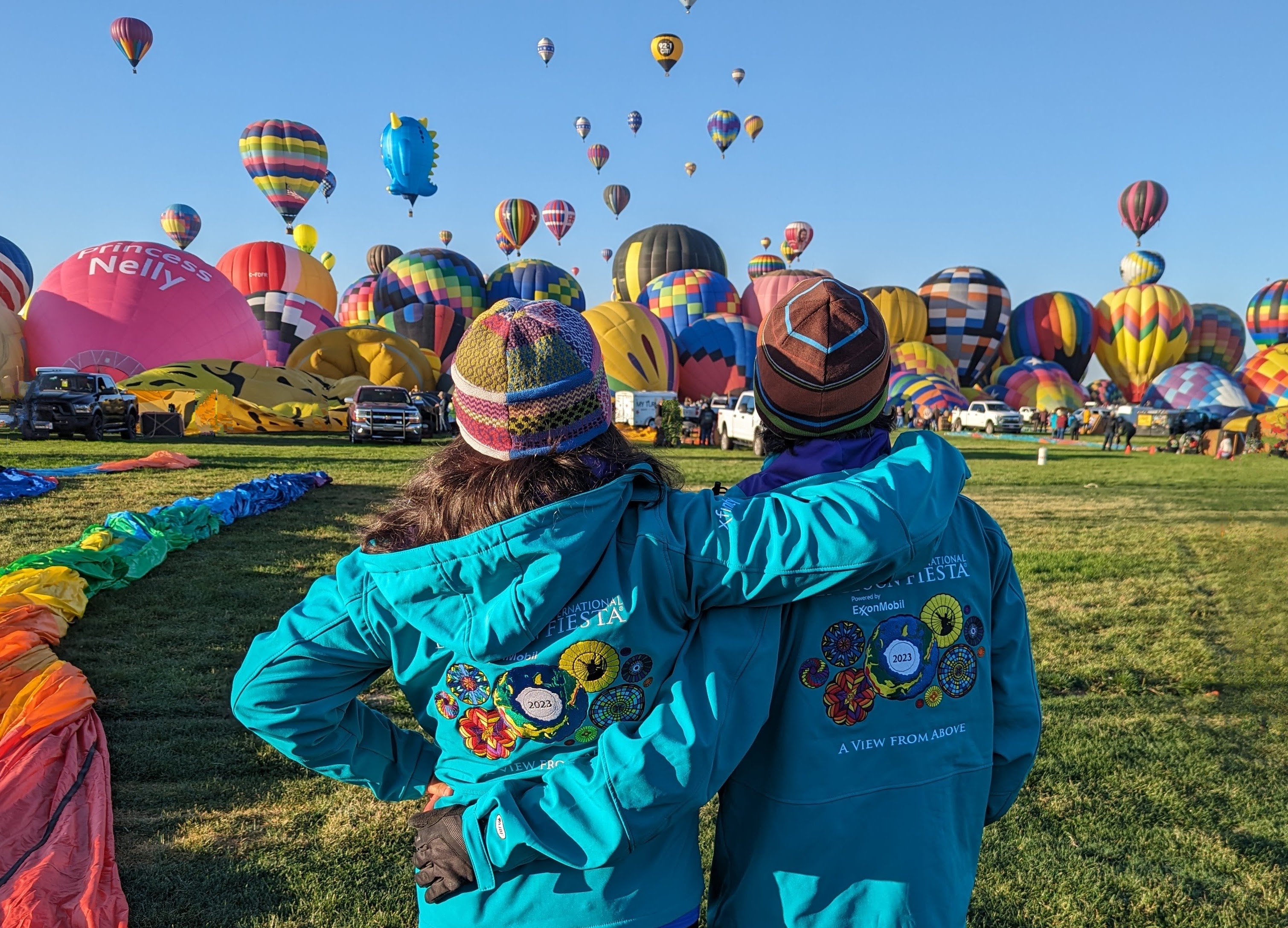
Got construction skills or want to learn some? Use them for good.
Join a Habitat for Humanity RV Care-A-Vanner Group Build! These builds are held all over the country at different times of year and many offer RV spaces (and even electrical/water hook-ups) to their volunteers. Bring your skills, meet people from all over the country, and make some new friends.
Have teaching experience and love the outdoors? Our parks need you.
Several federal agencies (national parks, monuments, historic sites, etc.) and many state parks around the country need educators to lead interpretative tours for visitors. We’ve volunteered as Environmental Educators in a couple different parks — and many of these options even come with a campsite in the volunteer/staff campground as well as a park pass for the year.
Note: Full background checks are typically required for these positions.
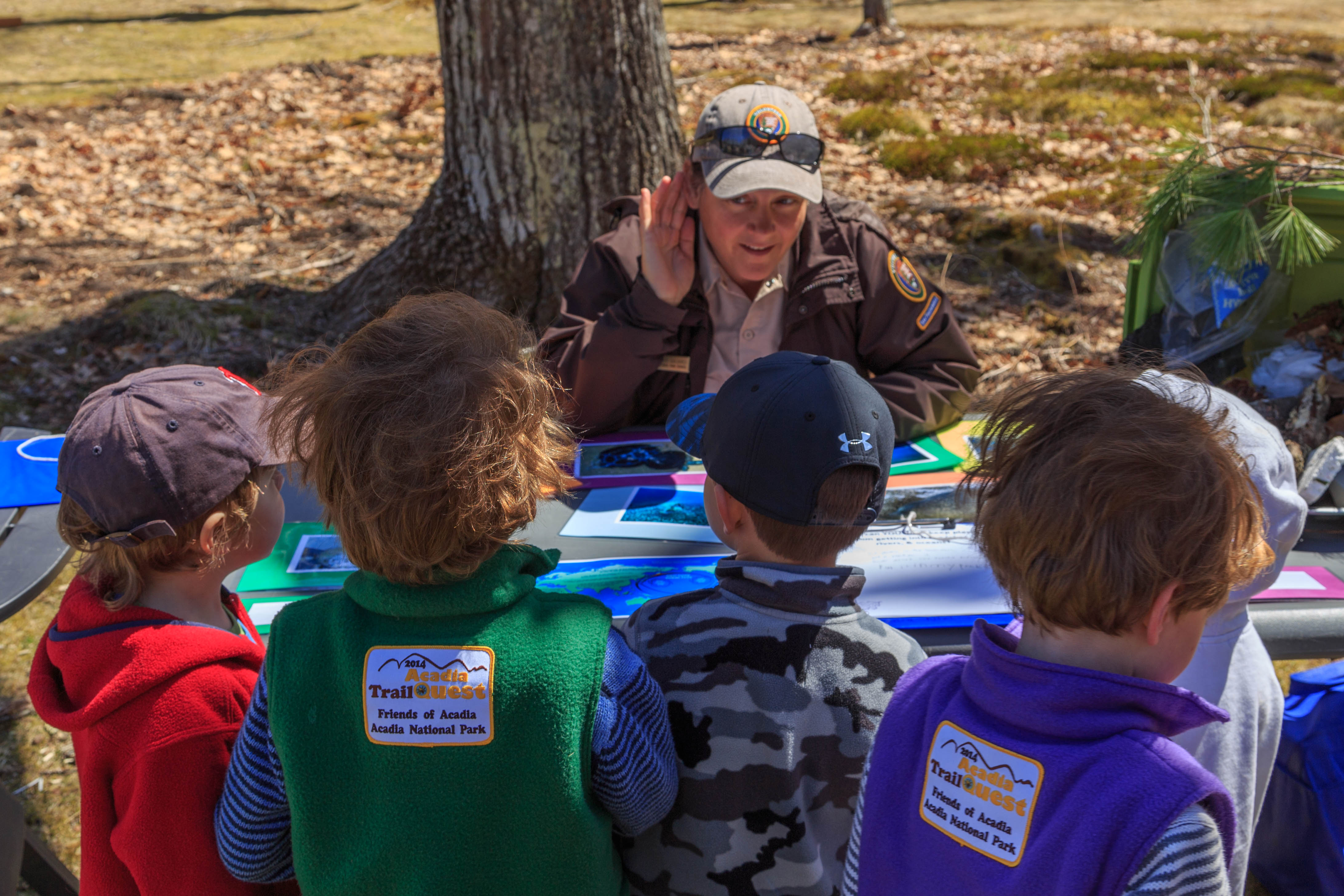
Want to help with disaster relief? Partner and deploy.
Join the DOVE program — a partnership between Escapees and the American Red Cross. When disasters strike, RVers are deployed to assist with a variety of critical needs. Typically, RVers need to be self-contained and provide their own power and water. Many RVers group up and park close to each other to support each other’s needs as well as the folks they are helping through the disaster.
Note: Training is required for this opportunity, as well as a full background check.
***
So, why even consider waiting around for another decade in a job you don’t like when you can simply jump into your RV and hit the road NOW? You may not be ready to retire. You may not want to stop working. Or maybe you just want to offset some costs of your road trip. Trust us, there are so many opportunities out there! But we guarantee you that they won’t come knocking at your door, you’ve got to go out there and find them.
Want to learn more about working from the road? This article is part of our Working from the Road 101 series.
The Essential Mindset to Work from Your RV (Part 1)
Seasonal RV Jobs and Side Gigs: How to Find Them (Part 2)
Everything You Need to Work Remotely from Your RV (Part 3)
RV Work Trade and Volunteering (Part 4)
